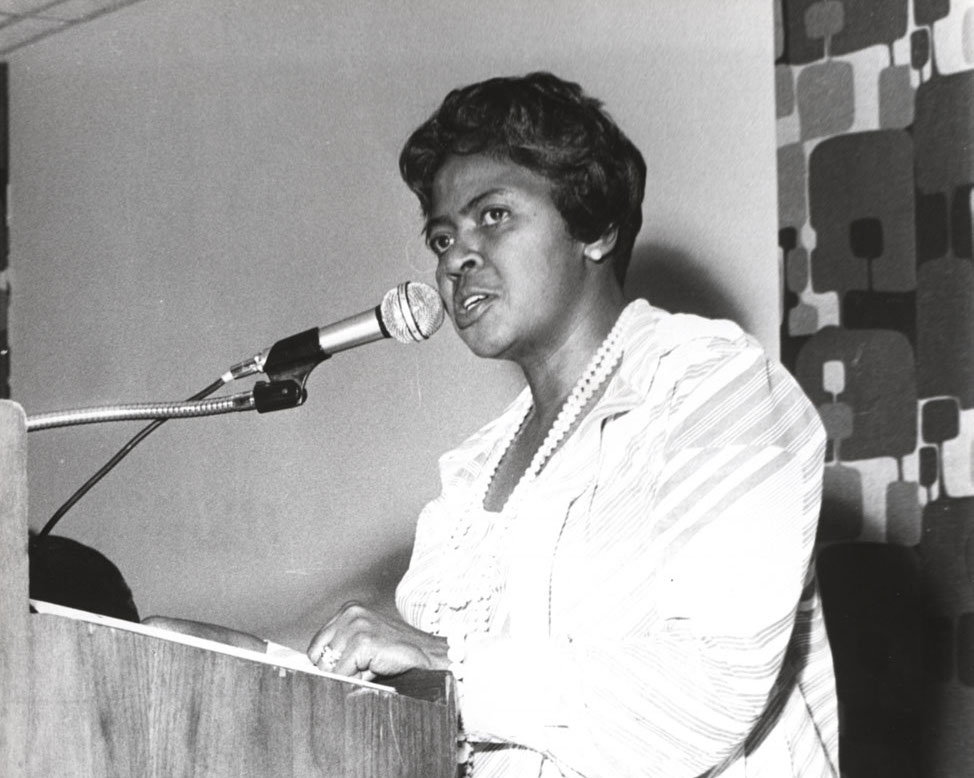
Why we celebrate Dorothy Bolden, Mother of the Domestic Workers' Labor Movement| OP-ED
“We aren’t Aunt Jemima women. And I sure to God don’t want people to think we are. We are politically strong and independent.”
Dorothy Bolden marched alongside Rep. John Lewis and Dr. Martin Luther King as a leader in the Civil Rights movement.
She organized thousands of domestic workers to fight for fair wages, benefits, workplace protections—and spawned the modern-day domestic workers’ labor movement. She came up with a code of conduct manual for employers that established safety regulations and basic guidelines of how to treat people employed in private homes.
But perhaps her greatest achievement was lending a deep sense of pride to domestic labor, asserting it not as women’s work but as highly-skilled, dignified labor that makes all other forms of work possible.
As Black women and as former and current domestic workers, we know the kind of mistreatment that Dorothy Bolden fought against all too well. We know what it’s like to work long, tiring hours at a difficult job and leave feeling violated, sore, undervalued, underappreciated, and underpaid. We know what it’s like to be shamed for our job titles, be asked to do more with less, and be pained with the knowledge that our exploitation is a direct result of our gender and race.
The structural devaluation of domestic work is not just common practice, but was intentionally written into law.
Housekeepers, nannies, and caregivers were excluded from the National Labor Relations Act (NLRA) and the Fair Labor Standards Act (FLSA) in the 1930s so that the economic marginalization of Black, brown, and immigrant workers could continue. As a result, domestic workers lacked the monumental protections granted by these federal labor laws that were extended to other professions: the minimum wage, a standard workweek, protection from harassment, and the right to strike or collectively bargain, just to name a few.
In response to this indignity, Dorothy Bolden rode every bus line in Atlanta to speak to hundreds of house cleaners and caregivers, organizing over 30,000 domestic workers to demand better working conditions.
Ms. Bolden showed us that out of the greatest struggles comes the most potent solidarity. She helped us to see that though isolated work environments can serve to separate domestic workers, collective organizing can unite them.
While we know firsthand the sting of mistreatment, like Ms. Bolden, we also know the power of speaking out against injustice, joining together with our siblings in the labor movement to assert our strength, mobilizing others for the common good, and winning key victories that will have implications for generations to come.
RELATED CONTENT
There is no clearer recent example of the power of domestic workers joining together to transform working conditions than the passage of the Domestic Workers Bill of Rights in Philadelphia in late 2019.
This legislation, which went into effect just last year, requires employers in the city to provide domestic workers with a contract, paid time off, and other essential protections. While this groundbreaking legislation set a national precedent for other cities to follow, the work is far from over. Domestic workers are continuing to organize to improve labor conditions, build power, and protect the sanctity of their work through the National Domestic Workers Alliance’s We Dream in Black program, which unites Black domestic workers around their shared interests and experiences.
We know that there is a great deal of work to do to ensure that labor protections are being enforced, wages are livable, and working conditions are safe. And we know that this can only be achieved through leveraging collective power, elevating issues related to domestic workers in the public sphere, and applying pressure to local and national leaders.
That’s why we joined together last week to introduce a resolution in Philadelphia City Council recognizing October 13th as Dorothy Bolden Day — and it passed unanimously. Today, on what would have been her 98th birthday, we commemorate the mother of the modern-day domestic workers’ movement, who continues to inspire us to mobilize, organize, and fight for each other.
“We aren’t Aunt Jemima women,'' said Dorothy Bolden in a 1986 interview with The Atlanta Journal-Constitution. “And I sure to God don’t want people to think we are. We are politically strong and independent.”
As Black women, the specter of the mammy archetype looms large in how we are perceived, treated, and compensated. Ms. Bolden helped us push back against this harmful trope and assert ourselves as unabashedly powerful, skilled, and unafraid.
We will continue to fight against the gross mistreatment of so many of our sisters who clean, cook, and care behind closed doors, and advocate for the fair treatment of all domestic workers. And we know from experience that when we harness our political power, we are an unstoppable force.









LEAVE A COMMENT:
Join the discussion! Leave a comment.